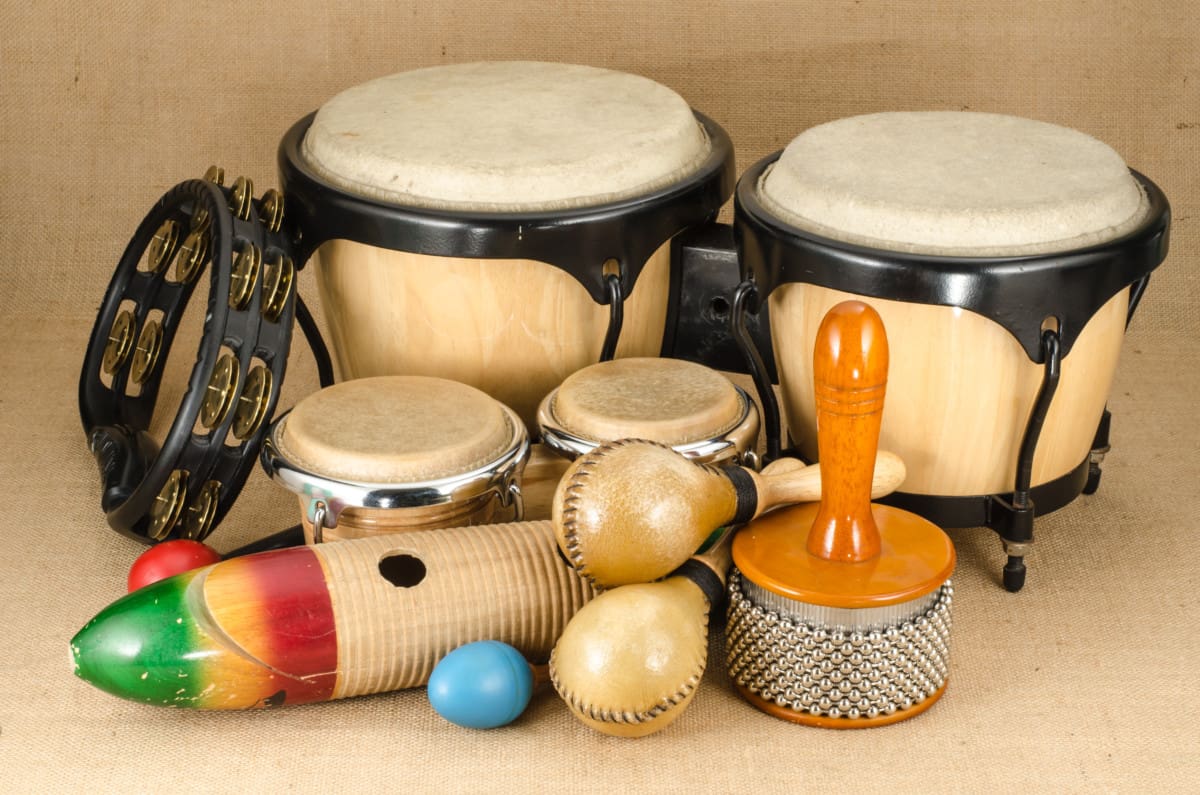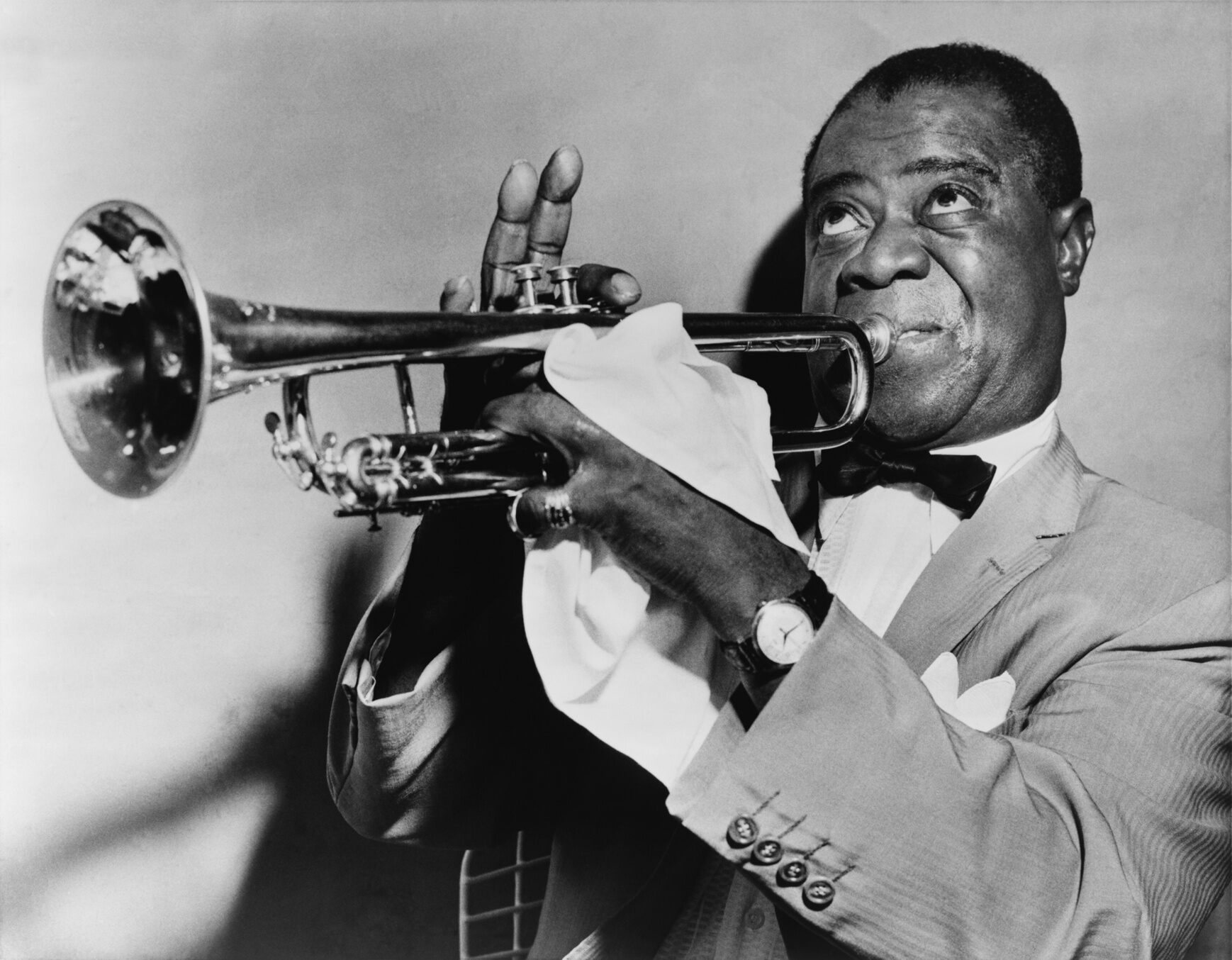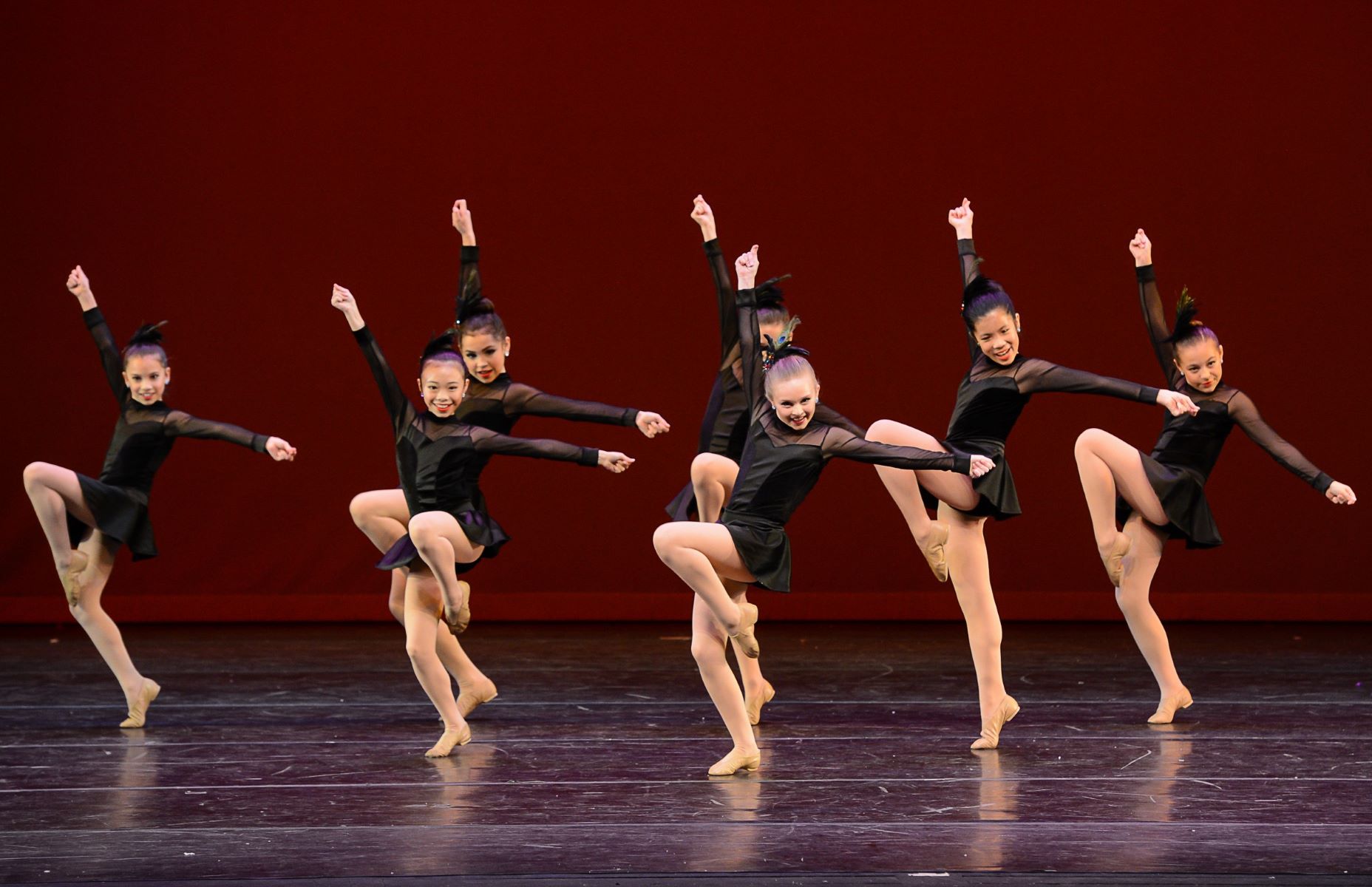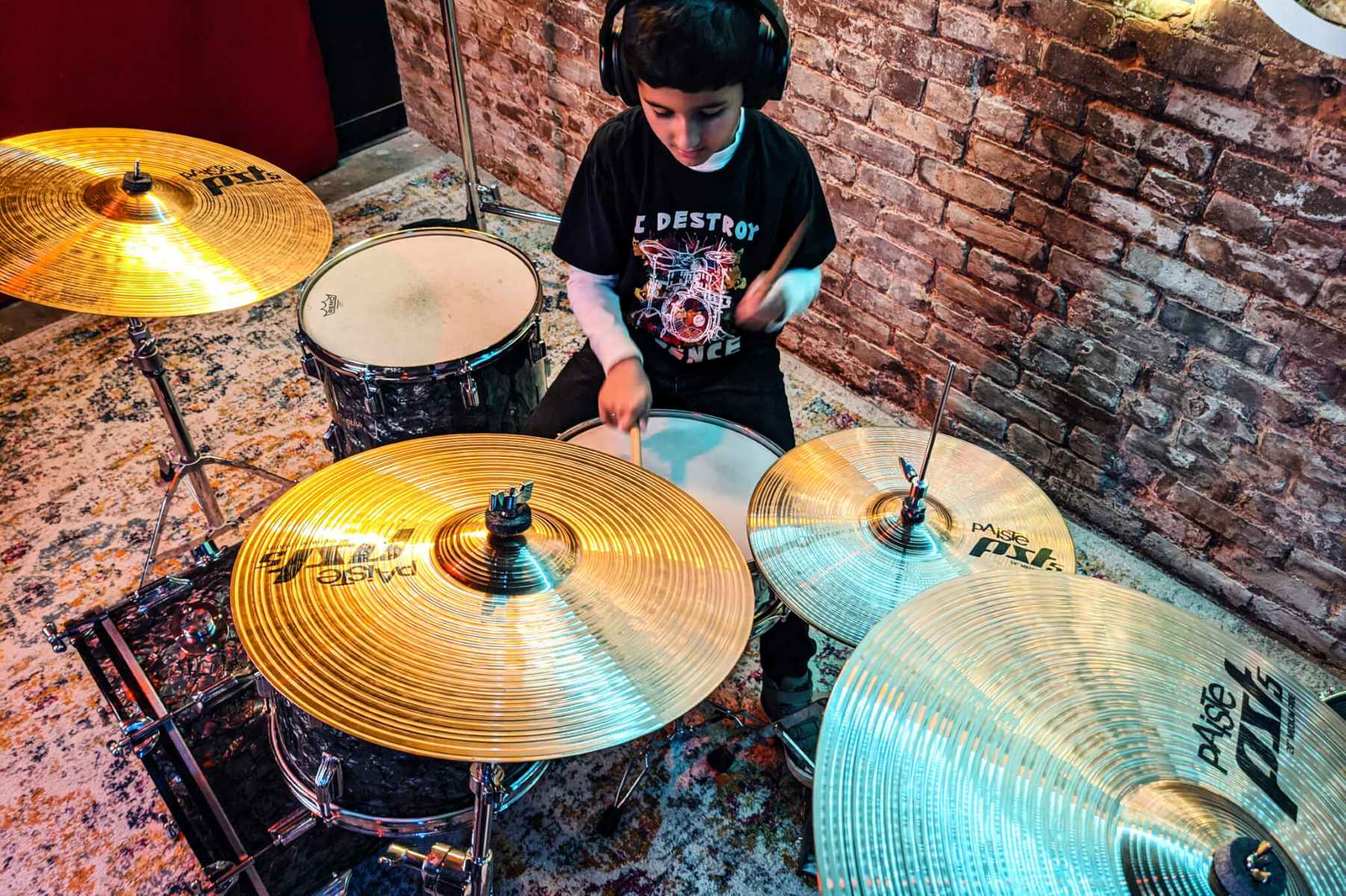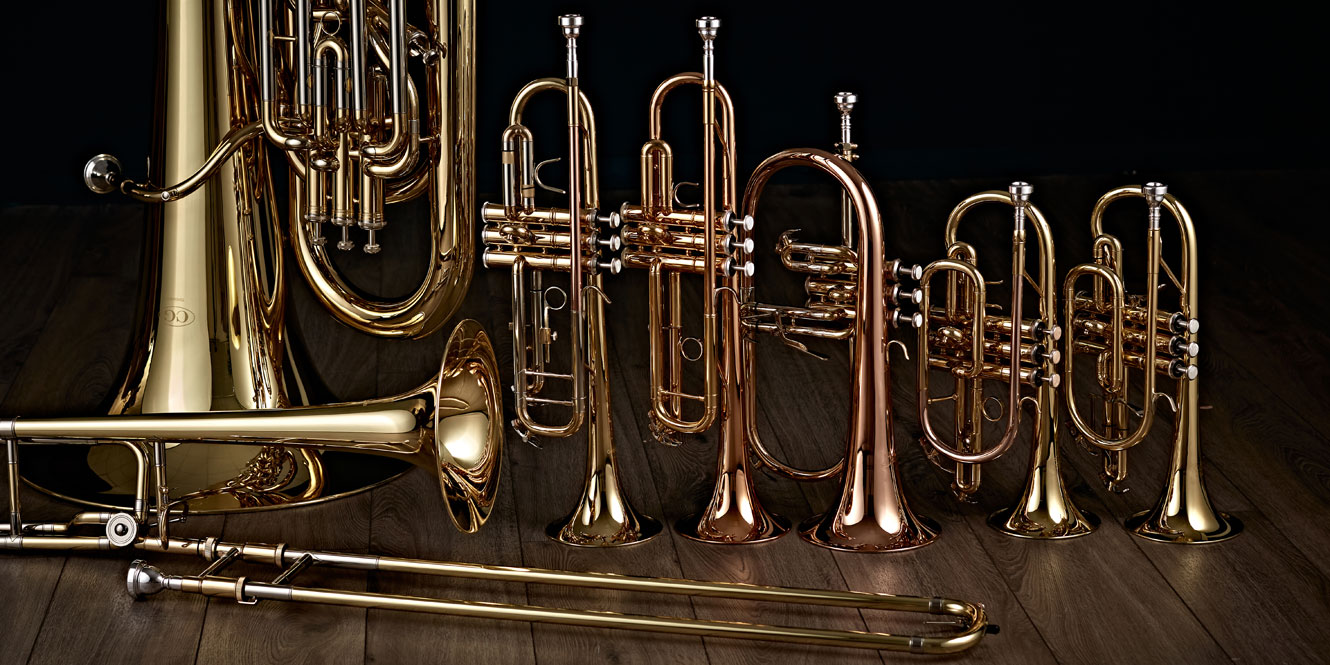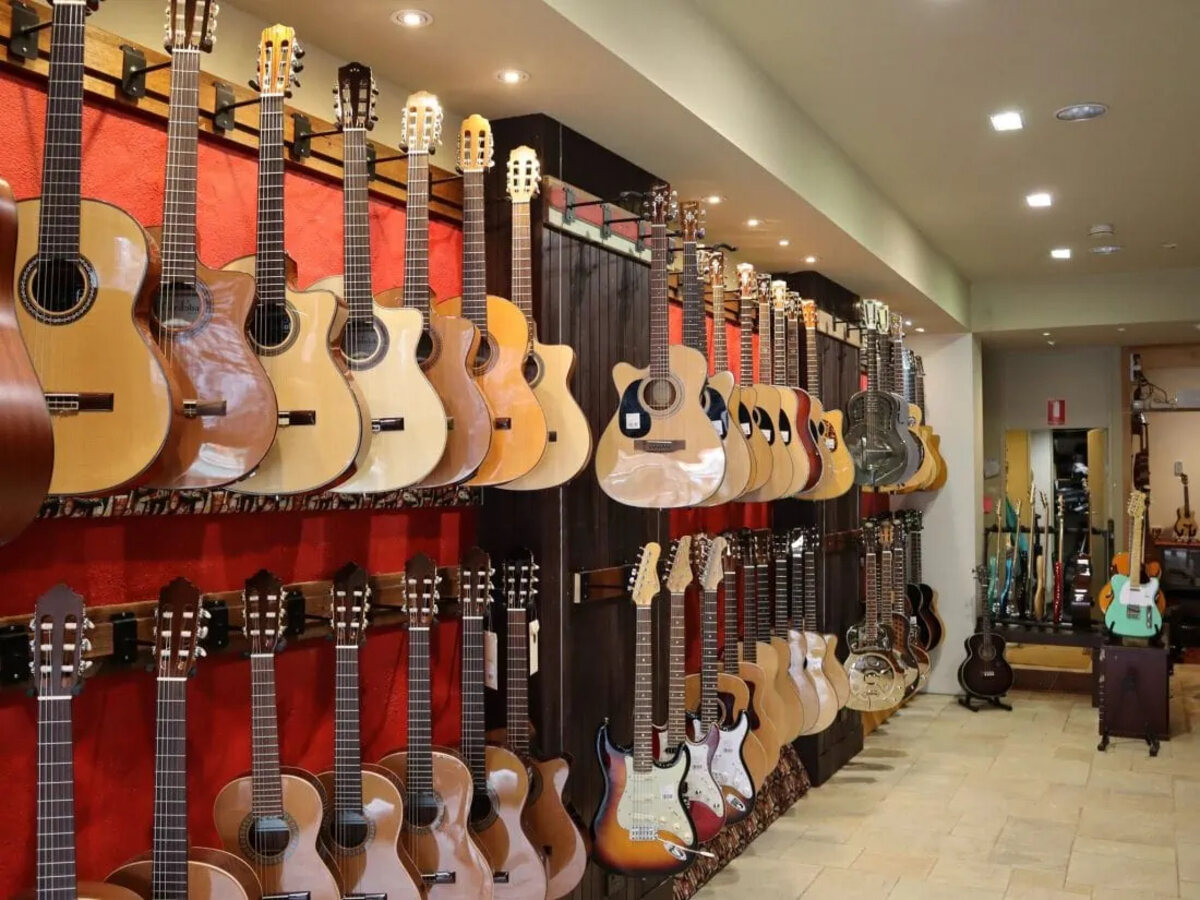Home>Devices & Equipment>Radio>What Were The Main Types Of Radio Shows?


Radio
What Were The Main Types Of Radio Shows?
Modified: January 22, 2024
Discover the main types of radio shows, from talk shows and music programs to news broadcasts and sports commentary. Tune in to your favorite radio station and experience the diverse world of radio.
(Many of the links in this article redirect to a specific reviewed product. Your purchase of these products through affiliate links helps to generate commission for AudioLover.com, at no extra cost. Learn more)
Table of Contents
Introduction
Radio has been a prominent medium of entertainment and information for decades. Before the emergence of television and the internet, radio shows were the primary source of audio entertainment for people around the world. From news and current affairs to comedy, drama, music, and more, radio shows encompassed a wide range of genres that catered to diverse audience preferences.
Radio shows hold a special place in the hearts of listeners as they allowed people to imagine, create their own visuals, and form a strong connection with the voices they heard. The absence of visuals required the utmost skill of radio hosts, voice actors, and sound engineers to engage and captivate the audience solely through audio.
In this article, we will explore some of the main types of radio shows that have left a lasting impact on the industry and continue to influence audio entertainment today. From the informative world of news and current affairs shows to the laugh-out-loud realm of comedy shows, and from the gripping narratives of drama and soap operas to the musical melodies of music shows, radio has truly offered something for everyone.
So, let’s dive into the world of radio and discover the various types of shows that have graced the airwaves over the years.
News and Current Affairs Shows
News and current affairs shows have always been a vital part of radio broadcasting. These shows serve as a reliable source of information, providing listeners with updates on local, national, and international news, politics, business, and societal issues. They aim to keep the audience informed about the latest events and developments happening around the world.
In the early days of radio, news bulletins were brief and concise, often delivered at specific times throughout the day. As technology advanced, news broadcasts evolved into more comprehensive programs, offering in-depth analysis, interviews with experts, and live reports from correspondents in the field.
News and current affairs shows serve an important role in promoting transparency, accountability, and public awareness. They not only provide information but also encourage critical thinking and discussion surrounding important topics. These shows often include debates and panel discussions that allow different perspectives to be heard and analyzed.
Some popular formats within this genre include morning news shows, evening news bulletins, talk shows focusing on politics and current events, and investigative journalism programs. The hosts of these shows are well-informed, objective, and skilled at presenting complex information in a clear and engaging manner.
With the rise of digital media, many radio stations now offer online streaming and podcast versions of their news and current affairs shows, making it easier for listeners to access the information at their convenience. Furthermore, social media platforms have become instrumental in disseminating news updates and engaging with the audience.
Overall, news and current affairs shows play a crucial role in keeping the public informed about the world around them. They empower listeners to stay up to date and contribute to meaningful discussions that shape society.
Comedy Shows
Comedy shows have always been a popular genre in radio broadcasting, providing audiences with laughter and entertainment. These shows feature comedic sketches, humorous storytelling, funny dialogues, and witty banter that aim to bring joy and amusement to listeners.
Comedy shows often feature talented comedians, actors, and voice artists who excel in delivering hilarious performances. They rely on clever wordplay, slapstick humor, satire, and clever observations to tickle the funny bone of their audience.
In the early days of radio, comedy shows leaned heavily on scripted sketches and character-driven humor. Popular examples include “The Jack Benny Program” and “Burns and Allen Show,” where talented performers created memorable characters and delivered witty one-liners.
As radio evolved, comedy shows embraced different formats. Sitcom-style shows, such as the iconic “Amos ‘n’ Andy,” featured recurring characters and ongoing storylines. These shows introduced audiences to relatable and humorous situations, often incorporating social commentary and satire.
Other comedy shows took the form of variety programs, combining comedy sketches with music and performances. These shows, such as “The Abbott and Costello Show,” showcased the comedic talents of the hosts alongside guest appearances by musicians, singers, and other entertainers.
Improvisational comedy shows also found their place in radio broadcasting. Shows like “The Fred Allen Show” and “The Bob Hope Show” incorporated live audience interactions, ad-libbing, and comedic improvisation, adding an element of spontaneity and unpredictability to the comedy acts.
Today, comedy shows have adapted to the modern era, with many radio stations offering podcasts and online streaming of comedic content. This allows comedians to reach a wider audience and explore new comedic styles and formats.
Comedy shows have the power to uplift spirits, bring people together, and provide a much-needed escape from the stresses of everyday life. They continue to be a cherished part of radio programming, delivering laughter and joy to listeners of all ages.
Drama and Soap Operas
Drama and soap operas have long been a captivating genre in radio broadcasting, captivating audiences with their compelling narratives and emotional storylines. These shows breathe life into vivid characters, create suspenseful plots, and evoke a range of emotions in listeners.
Radio dramas are known for their ability to transport listeners to different worlds, using the power of sound effects and voice acting to create immersive experiences. From thrilling crime dramas to heartwrenching love stories, radio dramas have showcased a wide range of genres and themes.
Soap operas, also known as radio serials, gained immense popularity during the early days of radio. These ongoing dramas revolved around the interconnected lives of fictional characters, with each episode ending on a cliffhanger, enticing listeners to tune in for the next installment.
Radio dramas and soap operas relied on talented voice actors who brought the characters to life, effectively conveying their emotions and conveying the depth of their relationships. The absence of visuals made it crucial for the actors to rely on their vocal abilities to create believable and relatable characters.
Many iconic radio dramas, such as “The Shadow” and “The Lone Ranger,” captivated audiences by combining thrilling stories with larger-than-life characters. These shows often incorporated elements of mystery, adventure, and suspense, leaving listeners on the edge of their seats.
Soap operas, on the other hand, delved into the personal lives of characters, exploring themes of love, family, betrayal, and redemption. The ongoing nature of these serials allowed for complex character arcs, with loyal listeners becoming emotionally invested in the lives of their favorite characters.
While the popularity of radio dramas and soap operas has diminished in modern times, they still have a dedicated following. Some radio stations continue to produce and air new dramas, while others offer classic radio dramas through podcasts and online platforms.
Drama and soap operas have left an indelible mark on the history of radio broadcasting. They demonstrate the power of storytelling and the ability of the human voice to captivate and engage listeners, proving that even without visuals, radio dramas can create a world of imagination and emotion.
Music Shows
Music shows have always been a beloved genre in radio broadcasting, offering listeners a diverse range of musical genres, performances, and insights into the world of music. From showcasing the latest hits to exploring different musical eras and genres, radio music shows have played a crucial role in introducing listeners to new artists and providing a platform for established musicians to share their talents.
One of the earliest forms of music shows on radio were live performances by bands and orchestras. Listeners would tune in to hear the sounds of the big band era or classical symphonies being broadcasted directly into their homes. These shows created a sense of enchantment and allowed people to experience live music without leaving their living rooms.
As radio evolved, music shows diversified and catered to various musical tastes. DJs became an integral part of the shows, offering commentary, music trivia, and interacting with listeners. These DJs were influential tastemakers, shaping the popular music scene and introducing new songs and artists to their audiences.
Top music countdown shows gained immense popularity, such as the iconic “American Top 40” hosted by Casey Kasem. These shows featured the most popular songs of the week, creating anticipation and excitement as listeners eagerly tuned in to discover which songs made it to the top of the charts.
Specialty music shows also found their place on the radio. Jazz and blues shows allowed listeners to delve into the rich history and diverse sounds of these genres. Country music shows showcased the talents of country legends and introduced new voices in the genre. Similarly, rock and roll shows celebrated the energy and rebellious spirit of rock music.
In recent years, digital platforms and online radio stations have taken music shows to new heights. Streaming services and podcasts offer a never-ending selection of music shows catering to every musical preference, providing listeners with personalized playlists and curated music recommendations.
Overall, music shows have been a cornerstone of radio broadcasting, providing a platform for artists to share their music and allowing listeners to discover new sounds, genres, and artists. The power of music to evoke emotions, tell stories, and unite people is truly showcased in these radio programs.
Talk Shows and Panel Discussions
Talk shows and panel discussions are a popular and influential genre in radio broadcasting, offering a platform for engaging discussions, informative conversations, and in-depth analysis of various topics. These shows bring together experts, professionals, and opinion leaders to share their insights, opinions, and perspectives with the audience.
Talk shows are typically structured around a host who guides the conversation and facilitates dialogue among the guests. These shows cover a wide range of subjects, including politics, social issues, technology, health, and more. The host and guests engage in thoughtful conversations, providing listeners with different viewpoints and encouraging critical thinking.
Panel discussions, on the other hand, involve a group of individuals with expertise in a particular field or topic. They share their knowledge, experiences, and opinions on the subject matter, often engaging in lively debates and discussions. These shows offer listeners a comprehensive understanding of complex issues and foster an environment of intellectual stimulation.
Radio talk shows and panel discussions provide a platform for public discourse and help shape public opinion. They allow listeners to gain insights, challenge their own beliefs, and expand their knowledge on a wide range of topics. These shows also serve as a forum for listeners to participate by sharing their thoughts and asking questions.
The accessibility of radio makes talk shows and panel discussions a powerful medium for reaching a broad audience. Listeners can tune in while at home, in the car, or even while engaging in other activities. This accessibility fosters a sense of community and shared experience, as listeners from different backgrounds and perspectives engage with the same content.
In recent years, the rise of digital platforms has expanded the reach of talk shows and panel discussions. Many radio stations now offer online streaming, podcasts, and on-demand playback, allowing listeners to engage with the content at their convenience.
Overall, talk shows and panel discussions on radio provide a platform for informed discourse, intellectual exploration, and the exchange of ideas. They play a crucial role in shaping public opinion, fostering dialogue, and empowering listeners to think critically about the world around them.
Quiz and Game Shows
Quiz and game shows have been a staple of radio broadcasting, entertaining listeners with brain-teasing challenges, trivia questions, and exciting competitions. These shows not only provide entertainment but also engage the audience by testing their knowledge, problem-solving skills, and quick thinking.
Quiz shows typically involve a host who presents questions to contestants who compete to provide the correct answers. The questions can cover a wide range of topics, from history and science to pop culture and sports. The contestants vie for prizes, and the tension builds as they try to outsmart each other in a battle of wits.
Game shows, on the other hand, incorporate various interactive elements and challenges. It could involve word puzzles, brainteasers, memory games, or even physical tasks. These shows often have a fun and energetic atmosphere, with participants and audience members actively engaging in the quest for victory.
Radio quiz and game shows rely heavily on audience participation to create an engaging experience. Listeners can play along, test their knowledge, and compete against the contestants in their own minds. The element of suspense and the thrill of trying to answer questions correctly keep listeners on the edge of their seats.
Some iconic radio quiz and game shows, such as “The Quiz Kids” and “Twenty Questions,” have entertained generations with their challenging questions and captivating gameplay. These shows became a household name and set the stage for the popularity of similar formats in television and digital media.
In the digital age, radio quiz and game shows have adapted to reach a broader audience. Many radio stations now offer interactive apps or online platforms where listeners can participate and play games in real-time. This allows for a more immersive and interactive experience, even beyond the traditional radio broadcast.
Quiz and game shows on radio provide a unique form of entertainment, engaging the brain and fostering a sense of friendly competition. They not only entertain, but also educate, as listeners learn new facts and expand their knowledge while participating in the excitement of the game.
Whether it’s answering trivia questions, solving puzzles, or engaging in rapid-fire challenges, quiz and game shows on radio continue to captivate listeners and provide them with hours of thrilling entertainment.
Variety Shows
Variety shows have been a beloved genre in radio broadcasting, offering a diverse range of entertainment that combines music, comedy, interviews, and other segments. These shows aim to provide a well-rounded and entertaining experience for listeners, showcasing a mix of talent and captivating performances.
One key feature of variety shows is their ability to attract a wide audience. They offer something for everyone, appealing to different tastes and preferences. Whether it’s music lovers enjoying live performances, comedy enthusiasts laughing at hilarious sketches, or fans of interviews and discussions tuning in for insightful conversations, variety shows provide a little bit of everything.
Radio variety shows often feature a host who acts as the central figure, guiding the program and introducing various segments. These shows may include musical performances by popular artists, stand-up comedy routines, interviews with celebrities and experts, and even audience participation segments where listeners can call in or send in requests.
One notable example of a classic radio variety show is “The Ed Sullivan Show,” which started on radio before transitioning to television. It featured a diverse lineup of acts, including musicians, comedians, dancers, and acrobats, providing a platform for emerging talent and showcasing the best of entertainment.
Variety shows have a unique ability to connect with the audience through a combination of live performances, engaging storytelling, and audience interaction. They create a sense of shared experience and bring people together through entertainment and laughter.
In the digital age, variety shows continue to evolve and adapt to new platforms. Many radio stations offer online streaming, podcasts, and on-demand playback, allowing listeners to access their favorite variety shows at their convenience. This flexibility enhances the accessibility and reach of these shows to a wider audience.
Overall, variety shows on radio have a timeless appeal, providing a blend of music, comedy, interviews, and other entertaining segments. They celebrate the diversity of talent and offer a delightful and engaging experience for listeners, making them a beloved genre in radio broadcasting.
Children’s Shows
Children’s shows have been a cherished genre in radio broadcasting, entertaining and educating young listeners for generations. These shows provide a source of imaginative storytelling, educational content, and interactive fun, catering specifically to the needs and interests of children.
From engaging narratives and lively characters to catchy songs and sound effects, children’s shows on radio captivate young minds and spark their creativity. These shows transport children to fascinating worlds, where they can embark on exciting adventures, learn valuable lessons, and explore their imagination.
Radio shows for children often incorporate storytelling as the primary format. Talented voice actors bring characters to life, enabling children to visualize the stories in their minds. These shows encourage active listening and help children develop their language skills, comprehension, and creativity.
Many children’s shows feature educational elements, teaching children about various subjects such as history, science, and geography. These shows aim to make learning fun and engaging, incorporating interactive quizzes, songs, and storytelling techniques that captivate young learners.
Popular children’s shows often have recurring characters and ongoing storylines, allowing young listeners to form connections with their favorite characters and follow their adventures. These characters serve as role models, imparting positive values, promoting kindness, and teaching important life lessons in an entertaining and relatable manner.
Radio shows for children also encourage active participation and engagement. Some programs involve audience interaction, inviting children to call in, share their stories, and participate in games or contests. This interactive element creates a sense of connection and involvement, making children feel like active participants in the show.
With the rise of digital technology, children’s shows on radio have expanded their reach through podcasts, online streaming, and interactive apps. This allows children to access their favorite shows anytime, anywhere, fostering a sense of familiarity and comfort.
Overall, children’s shows on radio play a vital role in entertaining, educating, and inspiring young listeners. They stimulate imagination, foster curiosity, and promote positive values, making them an integral part of children’s media and a treasured memory for many who grew up listening to them.
Sports Shows
Sports shows have been a popular genre in radio broadcasting, providing sports enthusiasts with the latest updates, analysis, and discussions on various sporting events. These shows cater to the passion and excitement of sports fans, offering a platform to delve into the world of athletics, engage in lively debates, and celebrate the thrill of competition.
Radio sports shows offer play-by-play commentary, expert analysis, and interviews with athletes, coaches, and experts in the field. They cover a wide range of sports, from popular ones like football, basketball, and baseball to niche sports like cricket, rugby, golf, and more. The hosts and commentators provide valuable insights, highlight key moments, and share their knowledge to keep listeners informed and entertained.
One of the highlights of radio sports shows is the ability to make listeners feel like they are right in the midst of the action. Through vivid descriptions and atmospheric sound effects, radio hosts bring games to life, allowing listeners to visualize the excitement and adrenaline on the field. This form of storytelling immerses fans in the sporting experience, making them feel connected to their favorite teams and players.
Sports shows on radio also create a sense of community among sports enthusiasts. Listeners can call in, share their opinions, and discuss their favorite teams or athletes with the hosts and fellow fans. This interactive element fosters a sense of camaraderie and provides a platform for passionate conversations and friendly rivalries.
In addition to live game coverage, sports shows often include segments on sports news, feature stories, interviews, and analysis of upcoming matches or tournaments. These shows keep fans updated with the latest developments, player transfers, injury updates, and other relevant information in the world of sports.
The increased availability of digital platforms has expanded the reach of sports shows, offering online streaming, podcasts, and on-demand playback options. This allows fans to access their favorite sports shows at any time and from anywhere, catering to the needs of a global and mobile audience.
Overall, sports shows on radio provide a platform for sports enthusiasts to stay connected to their favorite sports, teams, and athletes. Whether it’s following a thrilling game or engaging in analysis and discussion, these shows bring the excitement and passion of sports right into the homes and ears of fans.
Conclusion
Radio shows have provided a rich and diverse range of entertainment and information for audiences around the world. From news and current affairs to comedy, drama, music, talk shows, and more, radio programming has captivated listeners and left a lasting impact on the industry.
News and current affairs shows have played a crucial role in keeping the public informed and enabling meaningful discussions. Comedy shows have brought laughter and joy, relieving listeners from the stresses of everyday life. Drama and soap operas have transported audiences to gripping narratives and emotional storylines.
Music shows have celebrated the power of melodies and introduced listeners to new artists and genres. Talk shows and panel discussions have fostered critical thinking, engaged with experts, and stimulated intellectual discourse. Quiz and game shows have tested knowledge and provided exciting competitions.
Variety shows have offered a little bit of everything, providing a well-rounded entertainment experience. Children’s shows have sparked imagination, educated young minds, and celebrated the magic of storytelling. Sports shows have connected enthusiasts, brought games to life, and engaged fans in passionate discussions.
Throughout the years, radio shows have adapted to technological advancements and embraced digital platforms, reaching larger audiences and offering more convenient access. Whether through online streaming, podcasts, or interactive apps, radio shows have continued to evolve and remain relevant in the fast-paced digital era.
While the world of radio has transformed over time, the enduring appeal and significance of radio programs cannot be denied. They have entertained, informed, and connected people, leaving a lasting impact on the memories and experiences of millions.
So, as we reflect on the various types of radio shows that have graced the airwaves, let us appreciate the creativity, talent, and passion behind these programs. They have shaped the way we listen, think, and engage with the world around us, and they continue to enrich our lives with their captivating content.
Whether it’s the nostalgia of old-time radio or the excitement of modern digital platforms, radio shows have created a unique space for entertainment, knowledge, and shared experiences. And as we tune in to future broadcasts, let’s celebrate the enduring power of radio and the diverse range of shows that have brought joy, inspiration, and connection to listeners worldwide.


